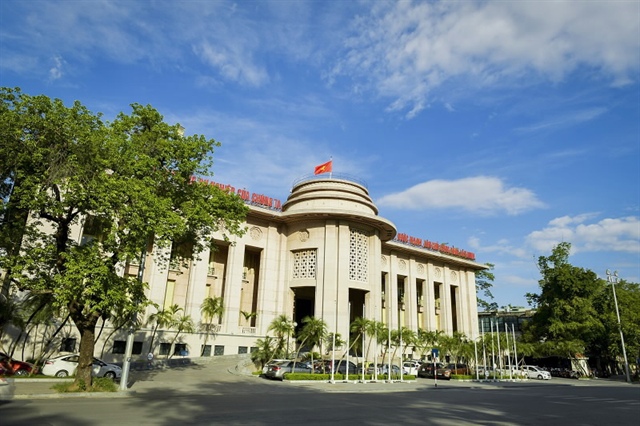Central bank widens USD/VND exchange rate band to 5%
Central bank widens USD/VND exchange rate band to 5%
The central bank is ready to sell foreign currency to stabilize the market if needed.
The State Bank of Vietnam (SBV) decided to widen the trading band of the USD/VND exchange rate from 3% to 5% from October 17.

The State Bank of Vietnam. Source: SBV |
According to the SBV, since 2022, the Federal Reserve (Fed) and other major central banks have turned to contractionary monetary policy and raising policy rates, while the Russia-Ukraine conflict has further disrupted the global supply chains.
Meanwhile, rising prices of strategic commodities, especially fuel and oil products, have led to inflation rates spiraling out of control, leading to volatility in the domestic and global finance markets.
“The move is necessary for Vietnam to better cope with unpredictable situation in the global market, along with the likelihood of further monetary policy tightening and raising interest rates by Fed and other central banks,” stated the agency.
“The SBV would continue to monitor the market and ensure flexible management of monetary policy to stabilize the market,” it noted, adding the willingness to sell foreign currency, if needed.
Following the announcement of the SBV, the USD selling prices on the market have increased by VND200-250 compared to last week.
On the black market, dollar prices in Hanoi have also risen by VND 50 compared to the previous day, with a buying price of VND 24,550 per dollar and a selling price of VND 24,830.
Since early 2022, the USD selling prices have increased by VND1,300-1,400, equivalent to 5.7-5.8% per year.
This was the first time that the SBV decided to widen the exchange rate band after seven years, with the previous move being in August 2015, when the trading band was adjusted from 2% to 3%.
Bloomberg cited Trinh Nguyen, a senior economist at Natixis SA in Hong Kong, that this is a sign that the authorities are tolerating a more weakening Vietnamese Dong amidst the rising volatile market.
“it suggests the central bank is less willing to use reserves to defend the dong,” Nguyen was quoted as saying.
Meanwhile, other suggested this a cheaper dong may improve the competitiveness of Vietnam’s export products against other in the global market.






















